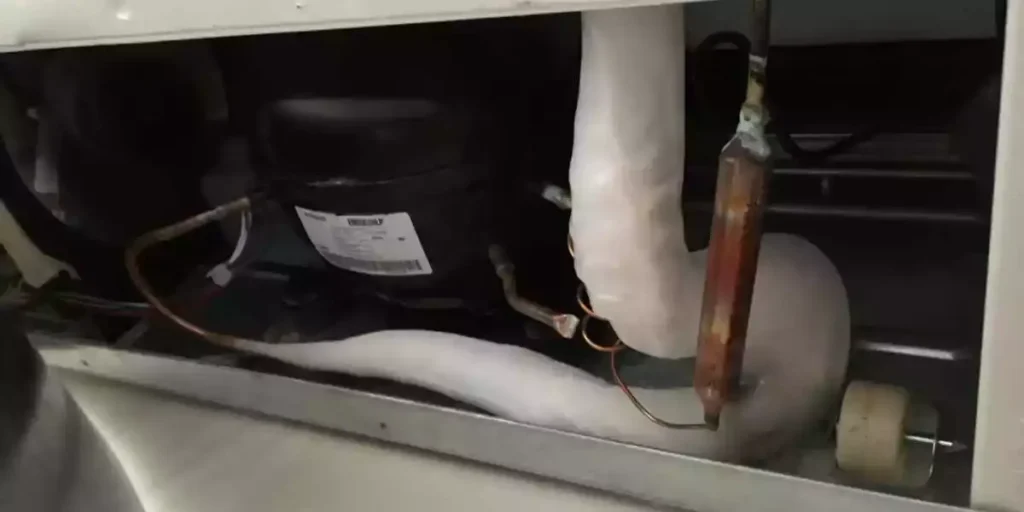The copper lines located in the back of your refrigerator are a critical component of its cooling system. It’s not uncommon for them to freeze up, causing concerns for homeowners.
Understanding why this happens and what steps you can take to prevent or fix it is important to ensure your refrigerator is functioning efficiently and effectively.
In this blog post, we will explore the causes and solutions of frozen copper lines in refrigerators.
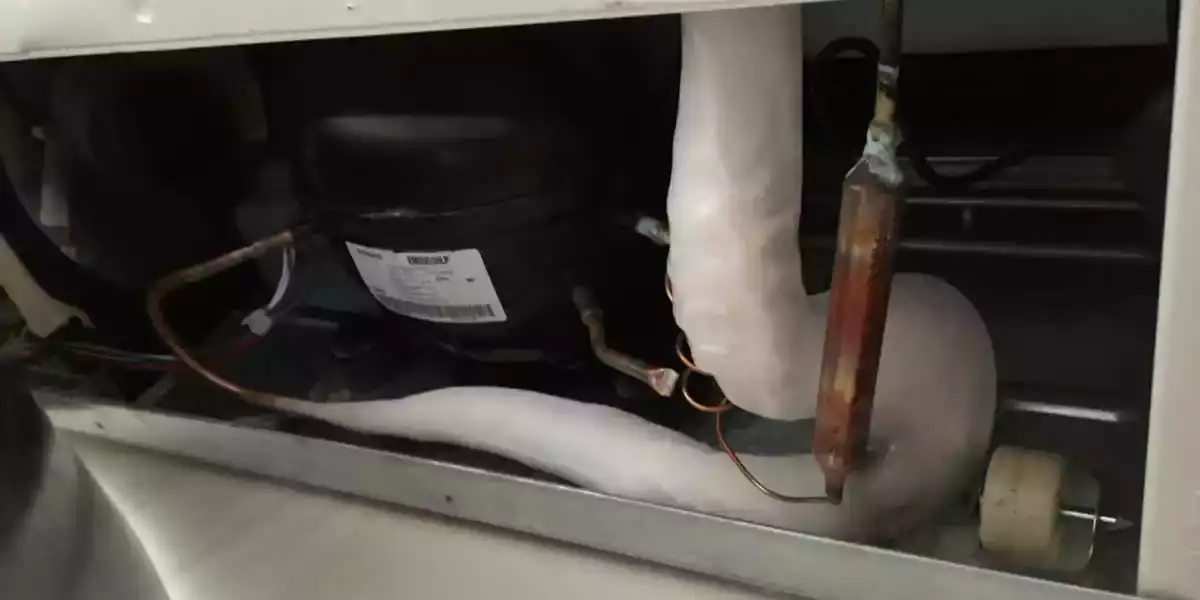
Why Are the Copper Lines in the Back of My Refrigerator Frozen?
When it comes to keeping your refrigerator in top shape, there are several things to keep in mind – including the possibility of frozen copper lines in the back of the unit.
Blocked air vents
The most common reason why copper lines in the back of a refrigerator freeze are due to blocked air vents.
When the air vents are blocked, it restricts the airflow and causes the evaporator coil to freeze, which in turn leads to frozen copper lines.
The evaporator coil is responsible for cooling the air inside the refrigerator, and if it’s not working correctly, it can lead to various issues.
Malfunctioning thermostat
Another reason why copper lines in the back of a refrigerator freeze are due to a malfunctioning thermostat.
The thermostat is responsible for regulating the temperature inside the refrigerator, and if it’s not working correctly, it can cause the evaporator coil to freeze.
This issue can be easily resolved by replacing the faulty thermostat.
Dirty condenser coils
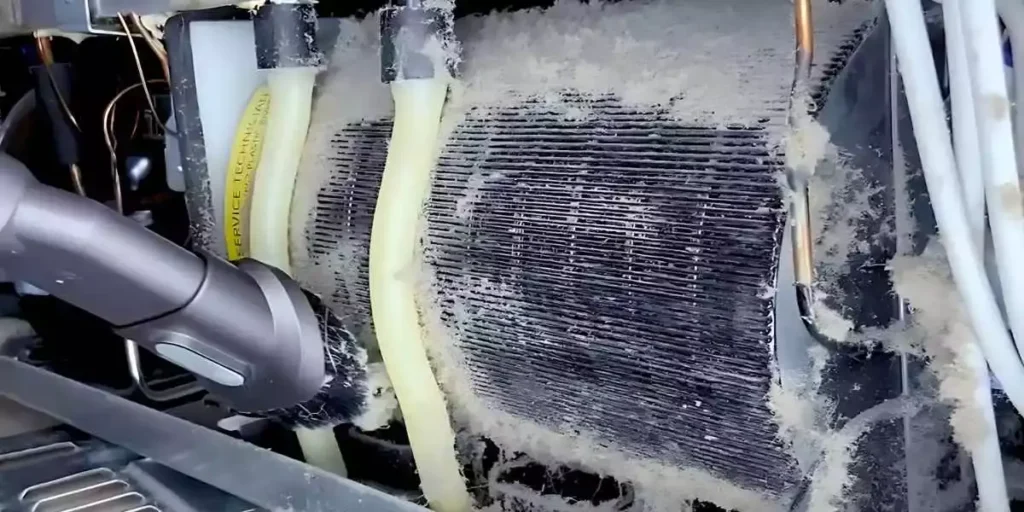
Dirty condenser coils can also cause copper lines in the back of a refrigerator to freeze.
When the condenser coils are dirty, it restricts the airflow and causes the compressor to work harder than usual, leading to frozen copper lines.
Cleaning the condenser coils regularly can prevent this issue from occurring.
Low refrigerant levels
If the refrigerant levels in a refrigerator are low, it can cause the copper lines in the back of the refrigerator to freeze.
The refrigerant is responsible for cooling the air inside the refrigerator, and if it’s not at the correct level, it can cause various issues, including frozen copper lines.
A certified technician should be called to fix this issue.
Faulty defrost timer
A faulty defrost timer can also cause the copper lines in the back of a refrigerator to freeze.
The defrost timer is responsible for regulating the defrost cycle, and if it’s not working correctly, it can cause the evaporator coil to freeze. Replacing the defrost timer can resolve this issue.
Impact of frozen copper lines on the Refrigerator
The impact of frozen copper lines on a refrigerator can be significant and costly if not addressed promptly.
Here are a few ways that frozen copper lines can affect the overall performance and longevity of your refrigerator:
Reduced Cooling Ability
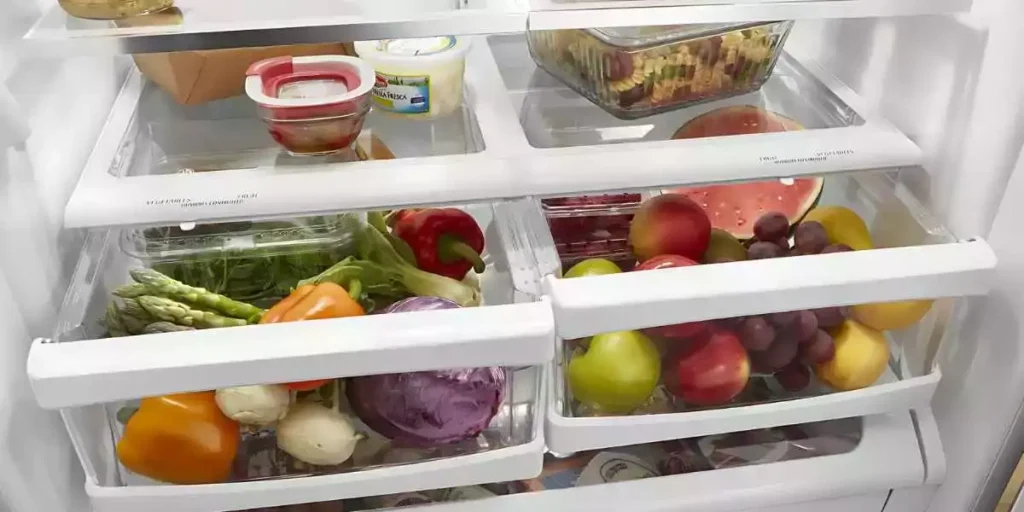
When the copper lines in the back of the refrigerator freeze over, it can cause a blockage in the refrigerant system.
This, in turn, can reduce the unit’s cooling ability, leading to warmer temperatures inside the fridge and potential spoilage of food.
Overworking the Compressor
If the copper lines are frozen, the refrigerator’s compressor may have to work harder to try and maintain the desired temperature inside the fridge.
This can lead to increased wear and tear on the compressor, shortening its lifespan and potentially causing it to fail altogether.
Higher Energy Bills
A refrigerator with frozen copper lines will have to work harder to keep the inside of the unit cool.
This can result in higher energy bills as the fridge consumes more electricity to compensate for the reduced cooling ability.
Frost Buildup
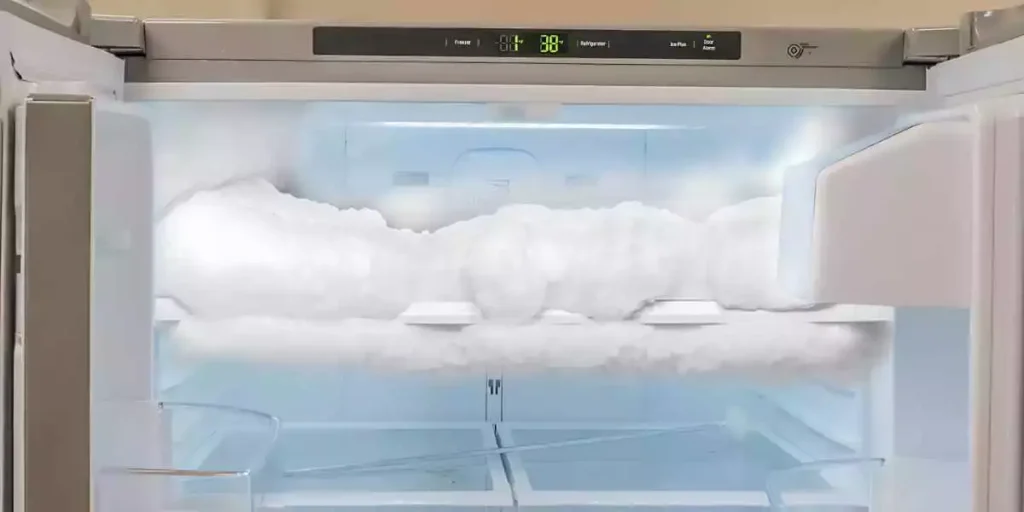
When the copper lines freeze, it can cause a buildup of frost on the coils in the back of the fridge.
This frost can lead to further blockages in the refrigerant system, causing additional damage to the unit over time.
Potential Damage to the Refrigerant System
If the copper lines remain frozen for an extended period, it can cause damage to the refrigerant system.
This damage can be costly to repair and may even require the replacement of the entire unit in severe cases.
How to Fix Frozen Copper Lines in the Refrigerator
If you’ve discovered that the copper lines in the back of your refrigerator are frozen, there are several steps you can take to fix the problem.
Unplug the Refrigerator
The first step in fixing frozen copper lines is to unplug the refrigerator and let it thaw out completely.
This can take several hours, so it’s best to remove all food from the unit and place it in a cooler with ice to prevent spoilage.
Clean the Condenser Coils
Once the fridge has thawed out, clean the condenser coils at the back of the unit. Dirty coils can cause a buildup of frost on the copper lines, so keep them clean to prevent the issue from reoccurring.
Check the Thermostat
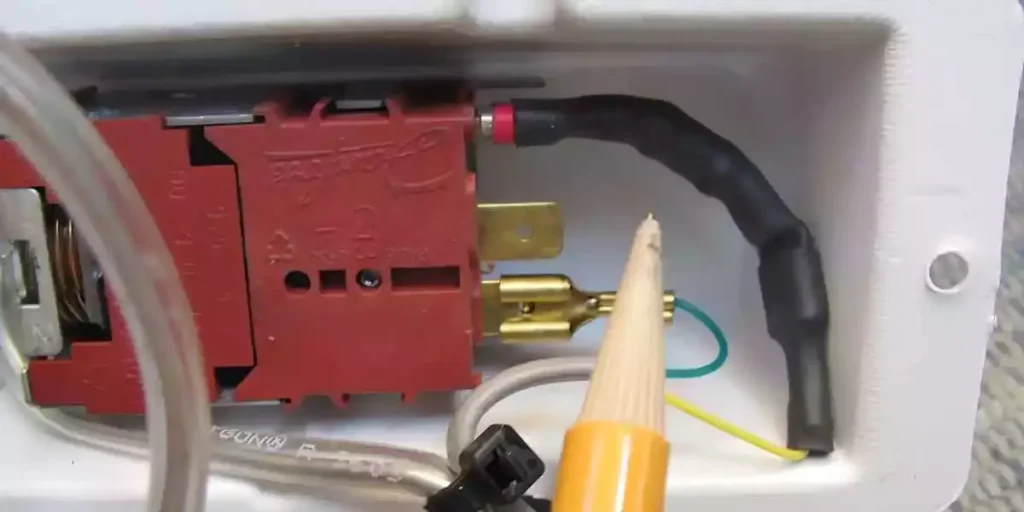
If the thermostat is not regulating the temperature inside the fridge properly, it can cause fluctuations that lead to frozen copper lines.
Check the thermostat and replace it if necessary to ensure it’s working correctly.
Replace the Defrost Timer or Heater
If the defrost timer or heater is faulty, it can cause the copper lines to freeze over. Replace these components to prevent further damage to the fridge and ensure it’s functioning correctly.
Call a Professional
If you’re not comfortable with fixing the issue yourself or suspect that there’s a more significant problem with the refrigerator, call a professional appliance repair service.
They can diagnose the issue and recommend the best course of action to fix the frozen copper lines.
Home remedies to fix frozen copper lines in refrigerators
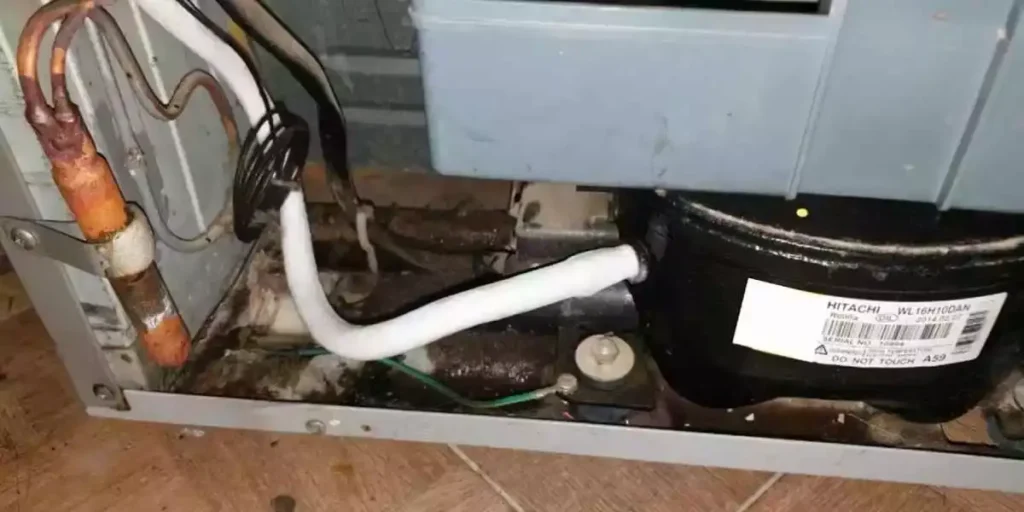
There are several home remedies that you can try to fix frozen copper lines in your refrigerator.
While these remedies may not work in all cases, they’re worth a try before calling a professional repair service.
Hairdryer
Using a hairdryer to blow hot air onto the frozen copper lines can help thaw them out quickly.
Be sure to use the lowest heat setting and hold the hairdryer several inches away from the coils to prevent damage.
Warm Water
Pouring warm water onto the frozen copper lines can also help thaw them out.
Use a bucket or container to catch the water as it melts and make sure to dry the area thoroughly afterward.
Heat Lamp
Placing a heat lamp near the back of the refrigerator can help thaw the frozen copper lines.
Be sure to keep the lamp several inches away from the coils to prevent overheating.
Salt
Sprinkling salt onto the frozen copper lines can help accelerate the thawing process. The salt lowers the freezing point of water, helping to melt the ice faster.
Vinegar
Applying vinegar to the frozen copper lines can help dissolve any mineral buildup that may be contributing to the problem.
Mix equal parts vinegar and water and apply the solution to the coils with a sponge or cloth.
Faqs
Can I Still Use My Refrigerator If The Copper Lines Are Frozen?
It’s best to unplug the refrigerator and let it thaw out completely before using it again.
Using the fridge with frozen copper lines can cause damage to the unit and affect its cooling ability.
Can I Fix Frozen Copper Lines In My Refrigerator Myself?
If you’re comfortable with DIY repairs and have some basic knowledge of refrigeration systems, you can try to fix the issue yourself.
If you’re unsure about what to do or suspect that there’s a more significant problem with the refrigerator, call a professional appliance repair service.
How Much Does It Cost To Fix Frozen Copper Lines In A Refrigerator?
The cost of fixing frozen copper lines in a refrigerator can vary depending on the severity of the issue and the type of repair needed.
DIY repairs may be relatively inexpensive, while professional repairs can cost several hundred dollars or more.
Conclusion
Frozen copper lines in a refrigerator can be a frustrating problem, but there are several home remedies that you can try to fix the issue.
Regular maintenance and cleaning can also help prevent the problem from occurring in the first place.
If the issue persists or seems more serious, it’s best to call a professional repair service to diagnose and fix the problem.

